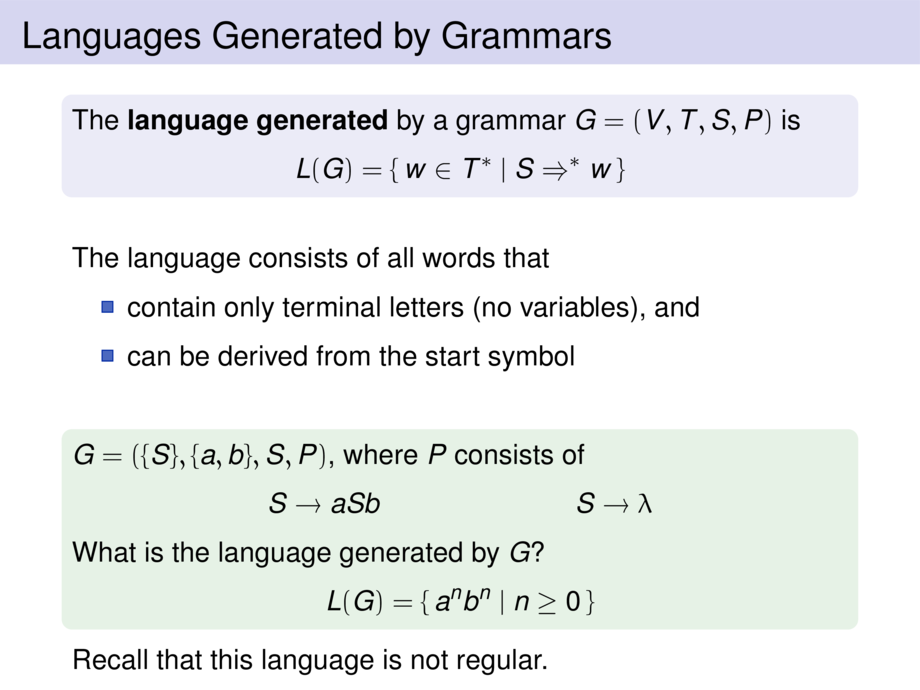



































































































31/80
\begin{frame}{Languages Generated by Grammars}
\begin{block}{}
The \emph{language generated} by a grammar $G = (V,T,S,P)$ is
\begin{talign}
L(G) = \{\, w \in T^* \mid S \Rightarrow^* w \,\}
\end{talign}
\end{block}
\bigskip
The language consists of all words that
\begin{itemize}
\smallskip
\item contain only terminal letters (no variables), and
\item can be derived from the start symbol
\end{itemize}
\pause\bigskip
\begin{exampleblock}{}
$G = (\{S\}, \{a,b\}, S, P)$, where $P$ consists of
\begin{talign}
S &\to aSb &
S &\to \lambda
\end{talign}
What is the language generated by $G$?
\begin{talign}
L(G) = \mpause[1]{\{\, a^nb^n \mid n \geq 0 \,\}}
\end{talign}
\end{exampleblock}
\pause
Recall that this language is not regular.
\end{frame}

